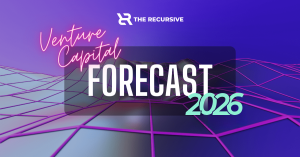Since early 2021 and until today, startups in the creator economy have secured nearly $15 billion. This remarkable increase highlights its growing status as a prime target for venture capitalists (VCs). Hence, attracting even more investments to the sector. Why? Let’s see.
The rise of user generated content
Historically, large media conglomerates dominated content creation, so it was highly difficult for ordinary people to enter the space. However, the rise of social media platforms allowed for a broader engagement. This ease of access has driven significant increase in social media usage and creator’s visibility and engagement, with global users spending over two hours daily scrolling through various platforms. Now, the projections suggest the creator economy could reach a staggering value of half a trillion dollars by 2027.
The COVID-19 pandemic, of course, did not leave the area untouched, moreover, it acted as a catalyst for this transformation, accelerating the growth of the creator economy as millions found themselves in lockdown. Also, with many people facing layoffs and the transition to remote work, more individuals turned to content creation as a means of income generation. At the same time, the e-commerce boom fueled this growth, as brands began to leverage creator partnerships to drive sales and expand their reach. So, over the past decade, the creator economy has transformed from a niche market into a thriving sector.
Why VCs are drawn to the creator economy?
A new sector with significant financial flows creates new demands for infrastructure that startups can provide well. For venture capitalists, this represents a huge ocean of opportunities to invest in startups that will offer products tailored to a growing and promising industry.
What startup opportunities are there in the creator economy?
The creator economy’s infrastructure offers startups a lot of chances to grow. Take as an example the possibilities in content creation and management tools, audience engagement methods, marketing and PR, and many other spheres. Nevertheless, the most acute problem and, therefore, an opportunity for this sphere is the financial management issue.
Many creators face challenges accessing traditional banking services, which often overlook their unique circumstances. As a result, there is a growing demand for fintech solutions, including payment systems and revenue management tools. Here, there is an opportunity for fintech startups to step in and have a hand in the industry’s development.
In particular, cross-border payments and tax complexities present ongoing challenges, especially for younger influencers who may lack awareness of the financial implications of their work. Fintech companies that address these issues and develop products suited to the creator economy’s distinct landscape have a unique opportunity to carve out a niche market. This can be a true win-win both for creators and fintechs.
However, it is important to consider some peculiarities that the industry carries:
-
- The creator economy is still relatively new, and investing in startups within this space carries inherent risks. This is because of the lack of established regulations and the emergence of new ones, trust, and strong relationships with other major industries.
- Acknowledgment of specific barriers. Investors should thoroughly assess whether a startup has a solid grasp of the market and the potential for scaling. For instance, solutions focused on audience engagement may face cultural or linguistic barriers that could hinder their success in diverse markets.
- Many creators belong to Generation Z, a demographic that has grown up with the internet and is highly adaptable to new technologies. Investors need to understand this audience’s unique needs and preferences rather than solely aiming to profit from them. They will have to be ready to keep up—success depends on quickly adapting to trends, testing new ideas, and consistently innovating.
- The ability to offer highly flexible solutions that can quickly adapt to the diverse requirements of various content distribution platforms is essential as well. The key is to ensure that the solution is not tied to a specific platform but is versatile enough to meet the changing needs of the digital environment—in other words, being platform-agnostic.
- Global solutions are also highly needed. Currently, there are no universal frameworks in place. Creators and businesses must navigate a patchwork of regional rules and policies. It is important to be prepared to address these diverse local challenges while also seeking to create solutions that can work globally.
The creator economy presents a huge number of investment opportunities for venture capitalists. And as the market is relatively new and our lives are more and more digital, it will grow even bigger with new trends, technologies, and solutions undoubtedly emerging, along with new challenges that will require collaboration between VCs and startups.








